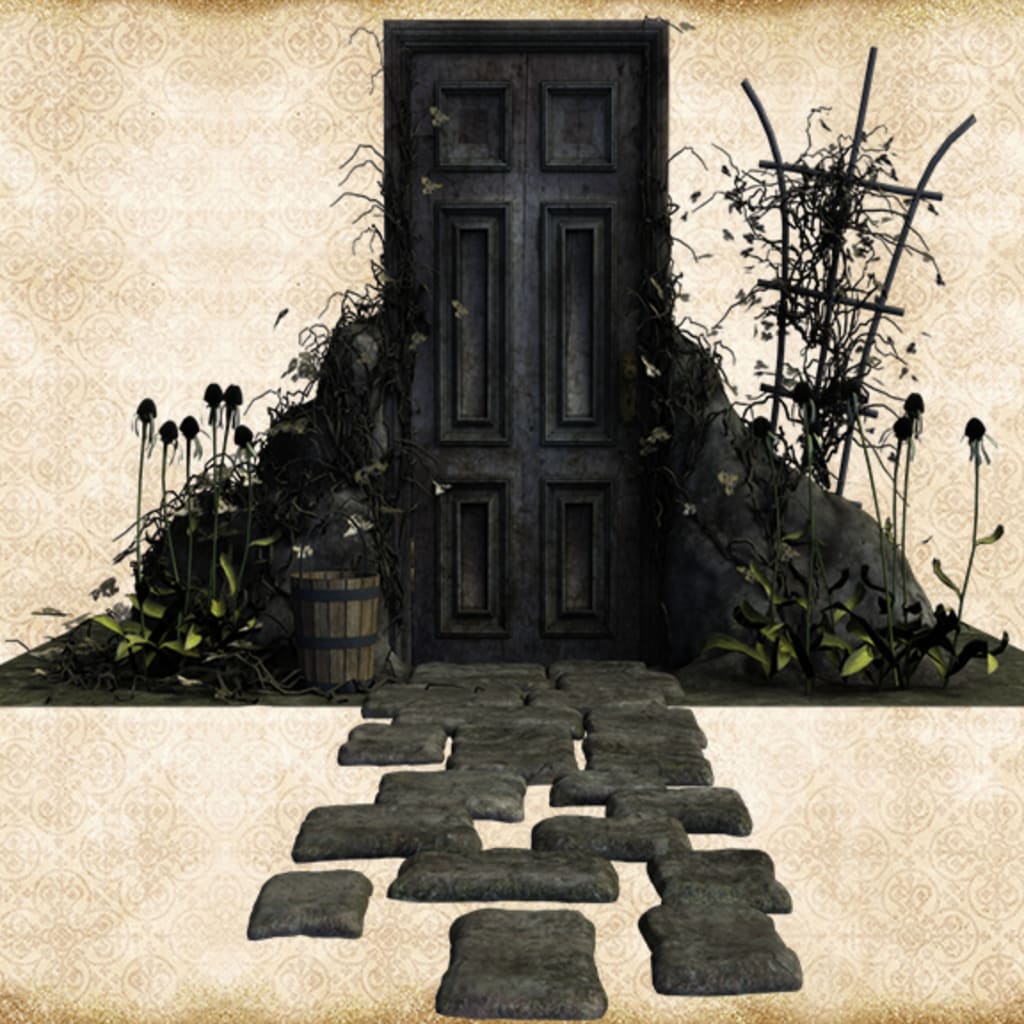
I've seen tonnes of horror films. Would I be suited for a job as an undertaker?
You'd be surprised at just how many CV's are laughed at because of this. And whilst you may think being a horror fanatic is a good thing when searching for a job in the funeral trade, it really does NOT assist you in the selection process. Trust me. Having a keen interest in the horror genre literally has NOTHING to do with the funeral trade, so keep that off your credentials.
How accurate are films in terms of portraying dead bodies?
Sorry to burst your bubble, but not at all. In fact I've yet to see a film that portrays a body in a realistic state. So if you're thinking along the lines of a zombified monster with a dirty scalp and flesh-riddled teeth, then you're out of the ballpark, I'm afraid. A dead body looks like a hardened version of a sleeping state, and providing the undertaker or embalmer has done their jobs correctly, you shouldn't be able to tell whether they're alive and sleeping or dead and preserved.
What qualifications do I need to become an undertaker?
Whilst technically you do not need any entry level qualifications to enter the trade, it is recommended that you aim for accredited courses in communication and problem-solving. There are also courses for funeral directors, providing you are aiming to head down that route and pursue a career in it.
How many pallbearers are needed for a funeral?
The standard amount of pallbearers at a funeral is four; two at the head end and two at the foot end. Depending on the weight it may be six pallbearers or as many as eight. A lot of things are taken into consideration beforehand regarding weight and sizes of the pallbearers.
How do I test to see if I'm suitable for the trade?
The problem with the funeral trade is there's just no telling whether or not you'd enjoy it. It's one of those things you have to experience before understanding whether it's for you or not. So before picking up all the relevant qualifications and diving into a job you aren't sure of, I'd suggest taking an internship at your local funeral directors. Dip your toe in the water and decide after a month or two.
Is it as depressing as I think it would be?
Surprisingly, no. When we associate the funeral trade with emotions we automatically assume you'd need to be the most mundane and morbid person on the planet. But I can assure you this, anybody can be an undertaker, and over the years I've met many happy-go-lucky people that specialise in 'switching off' and are able to look past the darker parts of the industry.
There are days you'd walk into the office and think 'this is depressing,' but the funeral trade in itself is portrayed to be that way. It is however just a job; a specialist job I'll admit. It can have its fun days, and it can have its bad days. It's balancing between the two and understanding where you stand that's the challenge.
Do I need to be good with people?
Communication is key in the funeral trade. It's kind of hard to believe when you spend most days surrounded by the dead. But it's true.
You need to have the ability to stay on your guard and be informative on command should a family member or doctor enter the building. You need to be compassionate but firm, delicate but weary. Every situation and interaction is different, and whilst you may be trying to adjust to each conversation, you MUST have patience and understanding; for it is YOU that they look to for comfort when talking about something that is incredibly difficult to discuss. You must act as the cornerstone for every scenario, and whilst it may be tough to bottle up the emotional aspect of the job, you need to learn to switch off and play your part with utmost respect and professionalism.
Will I see explicit/gory things in the trade?
It's no doubt you'll see some dark things whilst working in the trade, but I'm sure that's a given. But before throwing yourself into any situation, be sure to discuss with your boss the level of material you are willing to see.
I have met people in the trade who prefer not to see what goes on behind the scenes, and for when the curtain closes and the tools of the trade come out, they'd be happier making themselves scarce and carrying our administrative work in the office.
There are, however, people who'd be willing to lend a hand in every aspect of the role. This can mean anything from dressing the deceased in their resting clothes to embalming, or grooming hair and applying make-up. There are many things you'd have to encounter in the job, but having an open mind and the ability to switch off with no emotional attachment is a valuable key in which you'd need to apply before entering any situation.
What is a callout?
A callout is a job in the funeral trade where the undertaker will go out to the place of rest where a person has recently passed away and bring them back to the office mortuary or hospital, depending on the pre-arranged plans with the family.
A callout usually takes place later in the evening when most people are off the streets or sound asleep. This gives the undertaker the ability to visit the family without gathering the attention from neighboring properties or other residents in the property.
The undertaker will usually bring at least one other person along in order to lift the the body. They are then transported to a stretcher and into the funeral vehicle.
The family are asked to begin the arrangements at their earliest convenience, usually within the following 24 hours, where the funeral preparations can begin.
What is the process after a loved one is collected from their resting place?
After the loved one is transported back to the mortuary it is up to the immediate family or next of kin to call the funeral director in order to make a date for preparing funeral arrangements; this can either be at the funeral parlour or family's home address.
Whilst the funeral arrangements are being made, the loved one is dressed in the outfit chosen by the close family and prepared for the funeral. A casket is then constructed and prepared for the service.
Once all of the relevant paperwork has been filled out and signed between the funeral director and the family, the service date is acquired and slotted in. The family is then notified and the funeral arrangements are made according to the families preferences.
What is the eye myth?
Guaranteed you've seen a film where a character has died, and once they've passed on a fellow protagonist has used their thumb and pointer finger to close their eyes and allow them to rest. I'm afraid I'm going to exploit that right now and tell you that that isn't real, and you cannot in fact close somebodies eyes and expect them to stay shut.
A part of the embalming process is where the embalmer will insert cotton wool beneath the eyelids of the deceased. This allows the eyes to stay shut and give you the impression that they are in a sleeping state. So next time you see a film where something like this happens, remember this little fact.
If you die with your eyes closed, they'll stay closed.
If you die with your eyes open, they'll stay open.
What is the scariest thing about working in the funeral trade?
After a while you become immune to the world around you, and something as simple as bypassing a body or two just to flick the kettle on is beyond normal in comparison to some of the things you'd be doing that day.
However, in the initial days of working as an undertaker you are commonly expected to be more aware of your surroundings, and should so much as a light flicker then you're usually the first to react.
Working into the late hours in a funeral parlour is of course expected to be rather intense. What with the grumble of the mortuary fridge and the growl of the outside winds brushing past. You find yourself siting there alone in this dark office with nothing but the warming glow of a computer screen and fading lamp. The echo of the outside engine roars and fluent sirens are beckoning for you to make way for the hills. It's all very eerie, no doubt. But over time, the isolation grows on you and before long you almost welcome the thought of solitary confinement. It's strange like that, but it's probably the scariest part of the role.
Will I have nightmares after working in the funeral trade?
Funnily enough, a lot of people have asked me this. But I can quite confidently say, no—no you won't. It's something we'd expect of course after seeing the eyes of death or hearing the morbid lore of memories past. We get it into our minds that what we see will haunt is forever, and that the faces of these loved once will follow us into our dreams and forever posses us.
I can confirm that to this day, I have never once had a dream or nightmare about the funeral trade. So take it from me. You should be fine. It's all very scary in theory, but nothing can harm us nor affect our minds any more that we allow it to.
Do dead bodies smell?
This might shock you, but no. That's right. Dead bodies do NOT smell. Or at least not for a long while anyway. That is something we all assume when thinking of a deceased person; that their scent would be horrendously grim and cause us to throw up in our mouths for every whiff that fled our way. But surprisingly, it's not as bad as you'd expect.
It's a scent I can't exactly explain, but it really isn't what you'd think. If however, a body had been left for several weeks before being discovered, THEN you can expect a strong scent that will cause you to vomit.
It's a given that if you lack in the 'strong stomach' department then working within the funeral trade probably isn't for you. So for when those gruesome times come along, you need to be able to clench your chest and work through it without thinking about the details.
How much do funeral directors make per year?
Depending on experience, a funeral director can make anywhere between £17k and £30k per year, working on a full-time basis.
About the Creator
Jord Tury
Just a regular guy living in the West Midlands, UK.






Comments
There are no comments for this story
Be the first to respond and start the conversation.